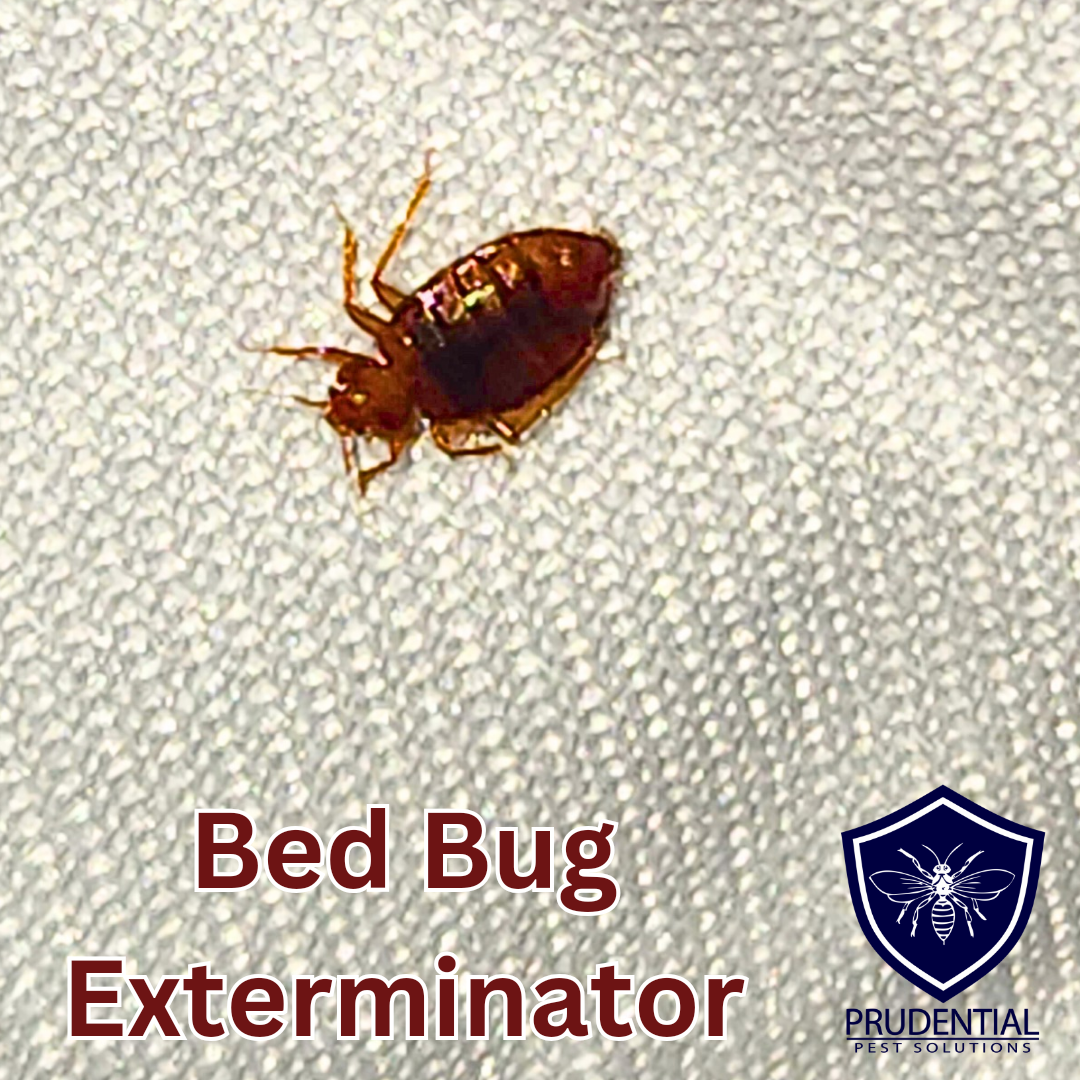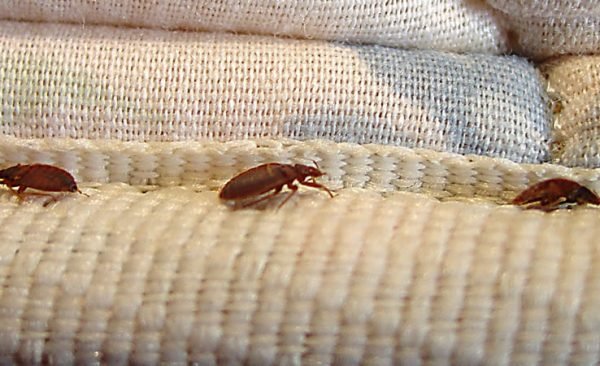Get Enlightened Concerning the Types of Bug Control Methods and Their Benefits for House Owners
Recognizing the various insect control approaches available to property owners is necessary for effective pest administration. From chemical and organic strategies to cultural and mechanical practices, each technique provides one-of-a-kind advantages that can significantly affect both health and wellness and ecological security. Home owners that are well-informed can make strategic choices that not only address insect problems however likewise improve the general high quality of their living atmosphere. As we check out these techniques additionally, it ends up being clear that the decision-making procedure includes even more than simply instant results; it touches on long-term sustainability and well-being. What elements should influence these essential decisions?
Chemical Insect Control Approaches
Chemical parasite control approaches are a critical component of integrated bug monitoring strategies for house owners looking for effective solutions to pest problems. These approaches involve the application of chemical compounds developed to eliminate or discourage bugs that endanger personal residential or commercial property, wellness, and comfort. Usual chemicals made use of consist of insecticides, rodenticides, herbicides, and fungicides, each tailored to target certain pests.
The key advantage of chemical parasite control is its rapid performance; many formulas provide instant outcomes, decreasing pest populaces significantly in a brief time. In addition, developments in chemical solutions have caused items that are more eco-friendly and have lower toxicity levels for non-target microorganisms when used correctly.

Biological Parasite Control Strategies
All-natural parasite control techniques have obtained importance as property owners look for much safer and much more lasting options to traditional chemical strategies. Organic pest control strategies utilize all-natural predators, bloodsuckers, or microorganisms to manage bug populations properly. This technique is not just ecologically friendly yet also decreases the risk of injury to non-target species, consisting of advantageous pests and wildlife.
Among the most usual biological control techniques involves introducing all-natural predators right into the environment. Ladybugs can be used to manage aphid populaces, while nematodes target soil-dwelling insects like grubs. Additionally, parasitoids-- organisms that reside on or within a host-- can be utilized to manage details insect types by laying eggs inside them, eventually resulting in their demise.
Another approach is using biopesticides, which are derived from natural products such as minerals, bacteria, or plants (bed bug exterminator). These products can efficiently target bugs while posturing minimal risk to human beings and pet dogs. Overall, biological bug control methods give homeowners with an efficient means of insect administration that lines up with environmental concepts, advertising a much healthier living setting while reducing reliance on synthetic chemicals
Mechanical Pest Control Strategies
Mechanical pest control strategies incorporate a selection of approaches that physically stop or remove parasites without making use of chemicals. These methods are especially helpful for house owners seeking ecologically friendly alternatives while making sure the security of their space.
One common approach is the usage of barriers, such as traps, displays, and internet, which stop bugs from entering homes or specific locations. navigate here For instance, installing home window screens can effectively maintain bugs out, while using physical obstacles around gardens can deter bigger pests like bunnies or deer. Additionally, mechanical catches designed for rats can capture and eliminate these bugs without the need for hazardous substances.
An additional efficient strategy includes the use of vacuum cleaners and mops to eliminate pests directly from surfaces. Routine cleansing and maintenance can dramatically decrease parasite populations by getting rid of food resources and hiding areas. Furthermore, utilizing tools like ultrasonic bug repellents can hinder various bugs via sound waves that are undesirable to them yet inaudible to people.
Cultural Parasite Control Practices
Cultural insect control methods concentrate on modifying the environment and administration methods to develop problems that are much less conducive to pest infestations. These methods are essential in preserving a well balanced ecological community and reducing the reliance on chemical interventions. By altering agricultural methods, house owners can properly deter insects while advertising plant wellness.
One common method consists of plant rotation, which disrupts the life cycles of parasites by changing the sorts of plants grown in a certain location (bed bug exterminator). This not just lessens pest populaces however likewise enhances soil health. Furthermore, intercropping-- have a peek at these guys planting diverse crops in closeness-- can perplex bugs and minimize their capability to find their preferred host plants
Water management is an additional critical aspect of cultural practices. Proper irrigation strategies can stop standing water, which acts as a breeding ground for insects and various other insects. Keeping tidiness in and around the home, such as frequently eliminating debris and food waste, can significantly reduce parasite tourist attraction.
Including these social practices right into a comprehensive pest monitoring method enables homeowners to develop an atmosphere that normally discourages parasites, thus boosting the efficiency of various other control techniques while advertising sustainable gardening and landscaping.

Integrated Pest Management Approaches
Integrated Insect Administration (IPM) stands for an all natural approach that combines various techniques to successfully take care of parasite populaces while decreasing ecological effect. This technique why not try this out integrates biological, social, physical, and chemical techniques to achieve sustainable pest control. By assessing pest populations and their all-natural adversaries, IPM stresses surveillance and recognizing parasites before carrying out control actions.
One of the core principles of IPM is the use of limits, which develop the degree of bug activity that requires intervention. This makes sure that therapies are used just when necessary, decreasing the reliance on chemical pesticides. Biological control methods, such as presenting all-natural predators or parasites, job in combination with social techniques like plant turning and environment manipulation to interrupt pest life cycles.
In addition, IPM urges the use of least-toxic chemical options when treatment is needed, prioritizing items that pose minimal risk to non-target organisms and the environment. For home owners, adopting IPM comes close to not only enhances the efficacy of parasite administration yet also advertises a healthier living setting, fostering biodiversity and minimizing chemical exposure. Ultimately, IPM empowers homeowners to make enlightened choices that balance parasite control with ecological duty.
Conclusion
In verdict, recognizing the numerous bug control methods equips home owners to make informed decisions relating to pest management. Each method-- chemical, biological, mechanical, cultural, and integrated pest monitoring-- supplies distinctive advantages that provide to different needs and choices.
Recognizing the numerous pest control methods available to home owners is crucial for reliable bug management.Chemical pest control approaches are an essential part of incorporated pest management techniques for house owners looking for reliable services to pest infestations. On the whole, biological pest control strategies offer homeowners with an effective ways of bug administration that lines up with environmental principles, promoting a much healthier living environment while lowering reliance on artificial chemicals.
Cultural parasite control methods focus on customizing the environment and administration techniques to produce conditions that are much less helpful to pest infestations.In verdict, understanding the different pest control techniques encourages property owners to make enlightened choices concerning pest management.